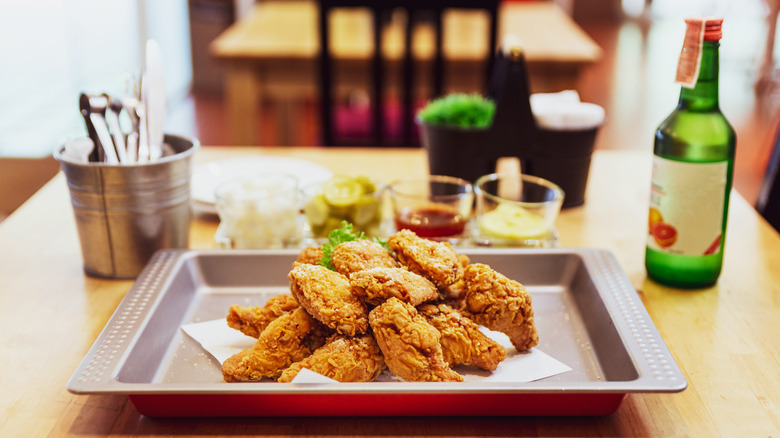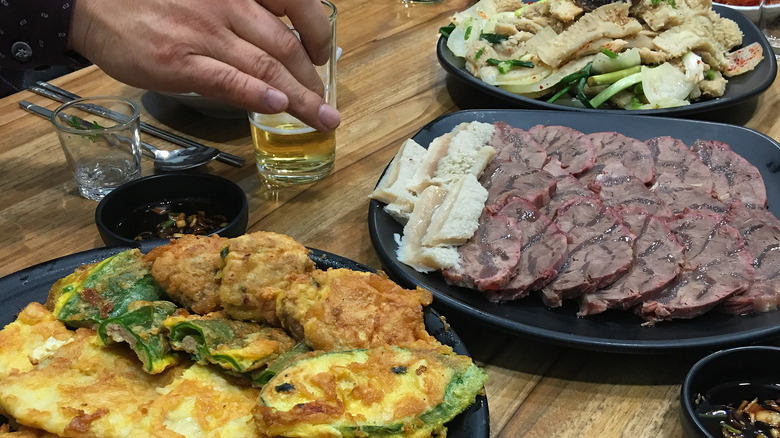Anju: The Korean Food Meant To Be Consumed At The Bar
Alcohol has been a key source of entertainment and artistry since the onset of human civilization. Any culture with a drinking tradition typically has particular foods to pair with beverages, doubling the gustatory pleasure and mitigating the dizzying effects of alcohol. Spanish tapas bars, Mediterranean mezze taverns, and American gastropubs are prime examples of the decadent marriage between food and drink. In Korea, bar food is known as anju, a term that translates literally to "alcohol blocker."
The origin story of anju shares many parallels with Western bar traditions, as food and drink were originally served at lodging establishments for merchants and other travelers to help ease the tedium of long journeys. In Western society, we know these establishments as inns, while in Korea they are called jumaks. Jumaks were the primary source of food and alcohol in Korea for centuries, and the pairings served were the prototype for modern anju.
Both inns and jumaks are now mostly defunct, but the culture of bar food is as strong as ever in Korea, expanding to accommodate global influences. Many of the most famous Korean delicacies like pork belly, fried chicken, and seafood or scallion pancakes, are long-standing anju favorites served in most Korean taverns and pubs.
Different types of anju for different occasions
Anju encompasses a long list of authentic Korean dishes that run the gamut from fermented salads to stir-fries, and fish jerky to deep-fried bites. Most dishes are umami-rich and spicy with bold flavors to stand up to the sharp taste of alcohol. As for drinks, the most common Korean alcoholic beverages include soju, rice wine, and beer. Each alcoholic beverage corresponds with a list of anju dishes that best pair with it.
Soju, a strong grain spirit pairs best with spicy stewed fish and meats, kimchi jjigae with tofu, and spicy stir-fries, as well as barbecued or grilled intestines and the famous pig feet dish known as jokbal. Rice wine pairs with spicy kimchi, gochujang-based stir-fries, bulgogi, and crispy pork belly to name a few. Much like the rest of the world, anju for beer includes greasy favorites like Korean fried chicken, corn cheese, and stir-fried rice cakes, as well as dried jerkies and nuts.
Globalization has brought both Western beverages and bar fare to Korea, including a wide assortment of grape wines to enjoy with steak and cheese plates, and imported beers to pair with pizza and deep-fried, battered fritters. Jumaks are no longer inns but remain the term used to describe traditional Korean bars serving iconic Korean anju. Beer pubs are known as Hof Houses and serve a mixture of Western and Korean anju.

